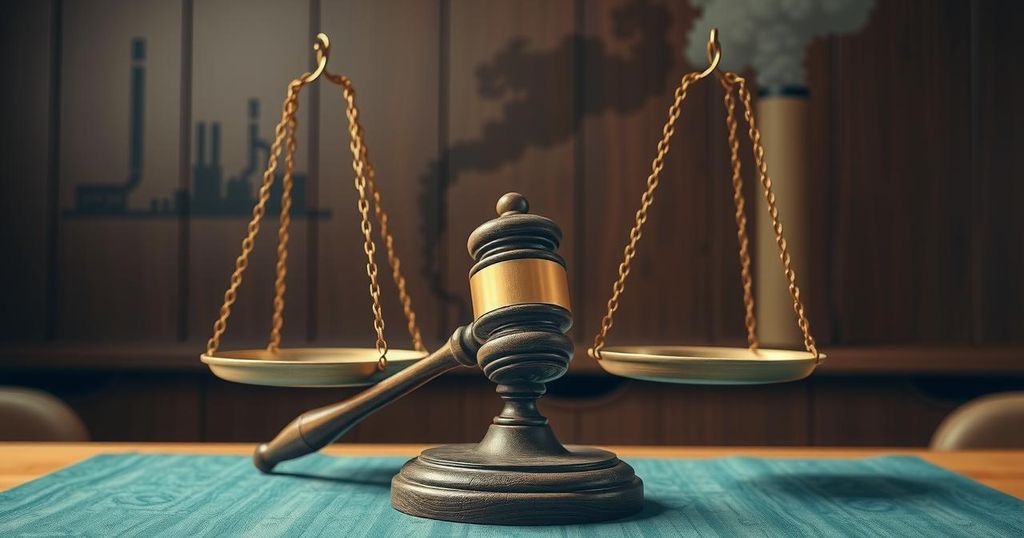Peruvian farmer Saúl Luciano Lliuya’s trial against RWE in Germany seeks accountability for climate change. His lawsuit claims RWE’s historical emissions have contributed to glacial melting, threatening his community. The case may establish important legal precedents regarding corporate responsibility for environmental damage. RWE denies liability, asserting that climate change requires broader policy action rather than legal actions against individual companies.
The climate lawsuit initiated by Peruvian farmer Saúl Luciano Lliuya against RWE is gaining traction as it heads to trial in Germany. This case holds the potential to set a pivotal precedent regarding the accountability of significant emitters of greenhouse gases for their contributions to climate change. Mr. Lliuya’s claims assert that RWE’s emissions have exacerbated global warming, resulting in accelerated glacial melting near his hometown of Huaraz, Peru, thereby increasing the risk of flooding to local communities.
During the court proceedings in Hamm, Germany, Mr. Lliuya articulated his concerns about the rapidly melting glaciers, acknowledging that Lake Palcacocha’s rising levels pose a direct threat to the safety of over 50,000 residents. His commitment to advocating for those at risk is underscored by his emotional statement: “I have waited 10 years for this day, this decisive day,” reflecting his hopes for justice.
The lead attorney for the plaintiff, Roda Verheyen, expressed optimism regarding the case’s implications, describing it as a significant step in legal accountability for climate impacts. Her remarks emphasized the urgency of addressing climate change, noting, “There is no time to be lost, because the glaciers are melting every day.”
In contrast, RWE contests the lawsuit’s legitimacy, arguing that climate change is a broad issue influenced by multiple factors and that individual legal responsibility would set a concerning legal precedent. The company advocates for addressing climate solutions at the governmental and international policy levels, rather than through the judicial system.
As the court deliberates on the potential risks to Mr. Lliuya’s home, the outcome of this case could influence future legal actions concerning climate accountability. Judges previously visited Peru to gather insights regarding the situation, and expert reports concerning the associated risks will be considered in the upcoming sessions.
This case marks a significant moment in the evolution of climate litigation, as it aims to hold large corporations like RWE accountable for their environmental impact, which some consider necessary for driving change in corporate practices regarding greenhouse gas emissions.
The case brought by Saúl Luciano Lliuya against RWE represents a landmark opportunity to challenge the legal frameworks surrounding climate accountability. It illustrates the intersection of environmental risk, community safety, and corporate responsibility within the realm of global warming. As this trial unfolds, the decisions made may reverberate throughout international climate litigation, shaping the future of corporate accountability in relation to climate change.
Original Source: apnews.com




